Chimney Services » annual inspection
Our Company Blog
by Mike O'Mara | Mar 6, 2015 | Chimney Inspections, Chimney Maintenance, Chimney Sweeping

Schedule a chimney sweeping and inspection as part of your spring cleaning!
March is upon us, which means spring is finally here. For homeowners, the arrival of spring means it is time to get started on annual spring cleaning chores. If you have a fireplace or wood stove in your house, that means your chimney should also be included. Weststar Chimney Sweeps is ready to help you with your chimney cleaning chores, and we would like to tell you more about our chimney sweeping process.
Why should I have my chimney cleaned and inspected in the spring?
It makes sense to have your annual sweeping done in the spring because most people schedule their annual chimney inspections in the fall, so you will not have a problem getting the appointment you want. Also, the sooner you have your chimney looked at after the heating season, the better. If there are problems that need repairing, you need to get them repaired quickly so no more costly structural damage occurs. The Chimney Safety Institute of America (CSIA) recommends homeowners have their chimneys inspected annually, so why not get into the habit of scheduling this appointment in the spring?
What should I expect from a chimney sweeping and inspection from Weststar Chimney Sweeps?
When you schedule a chimney sweeping and inspection with Weststar Chimney Sweeps, one of our licensed and certified technicians will come to your home and begin the inspection and cleaning process. Using modern technology, we use video cameras to allow us to closely examine the interior of your chimney and decide which type of cleaning technique we will need to do, based on the type of creosote build-up in your chimney and what kind of chimney you have. We use a few different chimney sweeping techniques, which include:
Standard Sweeping
Using the typical rotating brushes on long handles, along with a high-powered vacuum with a HEPA filter to keep debris and soot from getting in your home, this technique is effective for getting rid of average creosote deposits; however, if you have any major creosote build-up, as in 3rd stage, you will need a heavier-duty sweeping.
Mechanical Cleaning
In order to remove hard or glazed creosote deposits, high-speed rotating wire brushes, plastic cables, or specials chains are used to do the sweeping.
Chemical Cleaning
Sometimes mechanical cleaning is not enough, and chemicals may have to be used along with the high-speed rotating power tools to get rid of big deposits of glazed creosote.
What happens after the chimney inspection and sweeping is completed?
Once we do your sweeping and inspection, we will assess our findings and determine whether or not you need any repairs done to your chimney. Other than creosote build-up, the most common damage to chimneys seen after winter is water damage from leaks. If left unrepaired, this can lead to further, more costly structural damage. Weststar Chimney Sweeps can handle all of your chimney repair needs, if repair is necessary.
Do not forget your chimney when you are spring cleaning. Contact Weststar Chimney Sweeps to make an appointment for your annual chimney sweep and inspection.
by Mike O'Mara | Feb 6, 2015 | Chimney Inspections, Chimney Maintenance
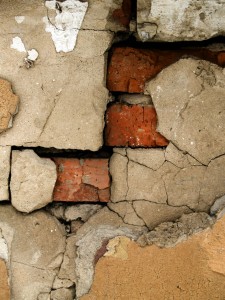
California is known for having earthquakes that can damage your chimney
As residents of California, we are familiar with dealing with earthquakes and the property damage they can cause. Did you know the most common earthquake property damage is chimney collapse? Not only is this true in our state, but also in other areas that suffer earthquakes in this country. The number of chimneys lost every year to earthquake damage is staggering. One reason for this great structural loss is chimneys are often ignored when preparing for earthquakes and the damage they can cause. Weststar Chimney Sweeps would like to tell you more about the effect of earthquakes on chimneys.
How do earthquakes cause a chimney to collapse?
It goes without saying that earthquakes cause the ground to shake resulting in buildings enduring forces to which they are not normally subjected toward. These forces lead to a deterioration of the brickwork and can cause a chimney to collapse. Even minor seismic events can cause this to happen to your chimney, so it’s important to have your chimney routinely checked – especially in seismic hotbeds.
What is the best prevention against chimney collapse during seismic activity?
The chimneys that are most commonly damaged are un-reinforced chimneys, according to InspectAPedia, an online encyclopedia of building and environmental inspection, testing, diagnosis, and repair topics.
What are the dangers of a chimney collapse?
No one can predict which way a chimney will collapse. If a chimney were to collapse on the house, it could be deadly. People have even become trapped inside by a collapsed chimney. Even if the chimney does not fall onto the house, it could fall on a neighbor’s home or on someone outside.
What can I do to prepare my un-reinforced chimney for an earthquake?
You can have your chimney braced, but this does not guarantee it will not collapse. You can also remove the masonry and use a metal flue that is surrounded by a wooden box. This box can be covered with brick veneer above the roof line.
What is the best thing I can do to be sure my chimney is sturdy enough to withstand seismic activity?
The best way to ensure your chimney is safe from earthquake damage is to have it inspected every year by Weststar Chimney Sweeps. We have experience in knowing where earthquake damage can occur and exactly what to look for to be certain your chimney is safe during seismic activity.
Have any questions about how earthquakes can affect chimneys? Contact Weststar Chimney Sweeps to find out whatever you need to know.
by Mike O'Mara | Nov 25, 2014 | Chimney Inspections
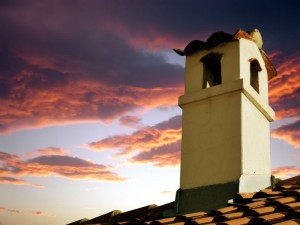 To become Chimney Safety Institute of America (CSIA)-certified chimney sweeps, our chimney technicians at Weststar Chimney Sweeps must pass an examination on the National Fire Prevention Association (NFPA) standard code 211, the standard for chimneys, fireplaces, vents, and solid fuel burning appliances. In this code, the NFPA developed three different levels of chimney inspections that all chimney sweep certified by the CSIA must strictly follow. Since the CSIA recommends an annual chimney sweeping and inspection, the organization also strongly suggests you should ask for the appropriate level of inspection for your chimney and venting system. To inform you of what each level involves to help you know which level to request, we would like to share with you an explanation of what happens during each chimney inspection level.
To become Chimney Safety Institute of America (CSIA)-certified chimney sweeps, our chimney technicians at Weststar Chimney Sweeps must pass an examination on the National Fire Prevention Association (NFPA) standard code 211, the standard for chimneys, fireplaces, vents, and solid fuel burning appliances. In this code, the NFPA developed three different levels of chimney inspections that all chimney sweep certified by the CSIA must strictly follow. Since the CSIA recommends an annual chimney sweeping and inspection, the organization also strongly suggests you should ask for the appropriate level of inspection for your chimney and venting system. To inform you of what each level involves to help you know which level to request, we would like to share with you an explanation of what happens during each chimney inspection level.
LEVEL 1
The simplest of the three levels of chimney inspection, ask for a Level 1 if your appliance or venting system have not changed and you are planning on using it as you normally have in the past. In this level of inspection, Weststar Chimney Sweeps will inspect all readily accessible parts of your chimney’s exterior and interior and all accessible parts of your chimney’s connection to the appliance. Checking for the soundness of structure and proper installation, our chimney inspectors will also verify your chimney is free from blockages and combustible creosote deposits.
LEVEL 2
Required when any change is made to your system, a Level 2 inspection examines changes in fuel type, changes to the size and shape of your flue, and changes to the heating appliance, such as when you have a fireplace insert installed. You must also request a Level 2 if you are selling or transferring your home and after building fires, chimney fires, earthquakes and tremors, and any weather-related event. Including everything performed in a Level 1 inspection, a Level 2 also examines the accessible parts to your chimney’s exterior and interior, including attics, crawl spaces, and basements. This level of inspection also addresses clearance from combustibles.
LEVEL 3
If a Level 1 or 2 inspection reveals a hidden hazard that cannot be evaluated without special tools to access concealed areas of your chimney or flue, Weststar Chimney Sweeps will recommend a Level 3 inspection, which is the most detailed of the three levels of inspection. When necessary, certain parts of the chimney must be removed for the evaluation to be complete. Parts that may be removed include the chimney crown or an interior wall of the chimney. This is only required when access is needed to areas that are subject to the inspection. Also, during a Level 1 or 2 inspection, if our chimney inspectors feel a serious hazard is present within your chimney or venting system, a Level 3 inspection may be required to examine the entire chimney or venting system.
Have questions about the three levels of chimney inspection? Contact Weststar Chimney Sweeps to find out more about each level.
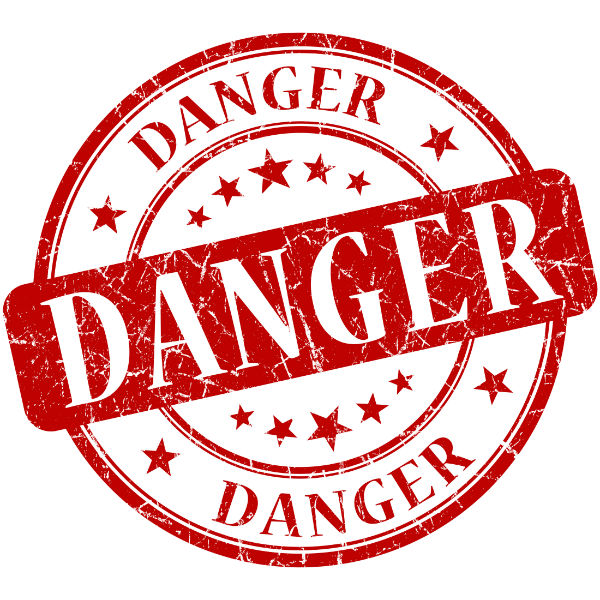
by Mike O'Mara | Nov 27, 2013 | Chimney Maintenance, fire safety
Fire Safety and Preparedness at Home
Every year, fires have claimed the lives of over three thousand Americans and have managed to cause injury to around seventeen thousand. A simple flame can turn into a blazing fire, changing a families’ life forever. This can be attributed to many things, including creosote build-up, blockages in your chimney and unsafe burning practices and materials. Always remember, the safest, most efficient burn is one with dry, seasoned firewood. Burning anything else increases risk and creosote buildup.
There are many family fire safety tips that are recommended by numerous fire safety agencies, but here are two of the most important precautionary measures of all – working fire alarms and a plan in case of emergency. Don’t let forgetfulness be the reason your home and family are put in harm’s way.
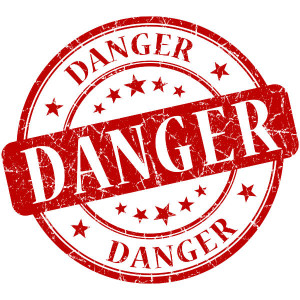
You put your family and home at risk when you fail to maintain working fire alarms and an escape plan.
Fire alarms are required on each level of the home and in each bedroom. Of course, no matter how many alarms you have, unless your batteries are working, they will not be able to do their job. Experts recommend that you check your batteries each time you “spring ahead” and “fall behind.”
Second, a fire escape plan is a necessity. The National Fire Protection Association provides a model for how to create this essential document for your home. Their website is also chock full of fantastic resources for the entire family. Just as batteries are key for alarms…practice is key for plans. Make sure all members of your family know what to do in case of a fire. Everyone needs to know to stay low to avoid harmful smoke, stop, drop and roll if clothing catches fire and to check doorknobs before exiting. The family also needs to know where to meet outside while waiting for firefighters.
When you cover these two critical bases, you can rest a bit easier knowing that your family is well-prepared. Call today to have your chimneys and fireplaces inspected and swept by the certified professionals of Weststar Chimney. Having been in business in San Diego for more than a decade, we are ready to take one worry off your plate. Don’t forget — the best way to avoid tragedy is to prepare rigorously.
by Mike O'Mara | Oct 29, 2013 | Uncategorized
What To Expect From A Chimney Inspection
If you’re new to fireplace or stove and chimney ownership, the regular maintenance process may be a little daunting, since there’s a lot to think about, and the words “fire hazard” aren’t exactly soothing. You also may be picturing the soot-covered, ash dust-spewing chimney sweeps from the movies coming into your home with a sack of ratty brushes.
Regular chimney maintenance — particularly your annual chimney inspection — is important, both to ensure that your chimney system performs correctly, and performs as safely as it can. But when you hire the experienced, CSIA-certified technicians at Weststar Chimney Sweeps, it’ll be an easy, comforting and clean process, and we promise you won’t see a single sooty top hat.
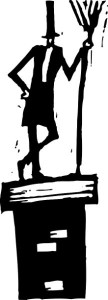
We aim to get in with little muss & fuss and give you a detailed look at your chimney.
When Weststar Techs Visit For A Chimney Inspection:
First things first: Our techs protect your home. We’ll lay dropcloths all around the work area to ensure that no mess is left.
Before we perform a standard chimney inspection (what’s considered a Level 1 inspection in the National Fire Protection Association’s 211 standard), we’ll sweep the chimney, to make sure creosote and debris is removed and we can get a clear and clean look at the flue and the rest of the system.
Once the chimney is clean, we’ll inspect every accessible part of the interior and exterior, from the firebox up to the chimney cap, looking for damage that could cause leaks or fire hazards. When we’ve completed that process, we’ll have a clear understanding of the state of your system, and you’ll have a report outlining all our findings, including any recommendations for repairs or replacement, so you can make informed decisions about next steps, if they’re necessary.
When A More Thorough Inspection Is Necessary
There are a few instances when a more detailed inspection — or a Level 2 inspection — will be more appropriate. One is when your chimney system has changed (like adding a new appliance or flue liner); another is when a property is being bought or sold. If this is your first chimney inspection, there’s a good chance it’s because you’re about to buy a house, so Level 2 is likely what you should inspect.
The process covers everything included in a basic visual inspection, but adds parts of the chimney that are in basements or crawl spaces and attics, and video scanning, which offers a much more detailed look at the flue. And that detail is really important if you’re about to take on a chimney system as your own — we all want to know exactly what we’re buying when we make a major purchase, and a Level 2 inspection insures that you get the full picture.
If you have any questions about chimney inspections or any other kind of chimney care, Weststar is always here to help — just give us a call!
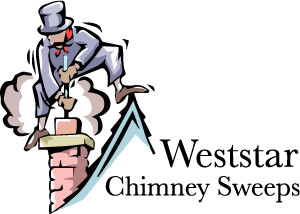


 To become Chimney Safety Institute of America (CSIA)-certified chimney sweeps, our chimney technicians at Weststar Chimney Sweeps must pass an examination on the National Fire Prevention Association (NFPA) standard code 211, the standard for chimneys, fireplaces, vents, and solid fuel burning appliances. In this code, the NFPA developed three different levels of chimney inspections that all chimney sweep certified by the
To become Chimney Safety Institute of America (CSIA)-certified chimney sweeps, our chimney technicians at Weststar Chimney Sweeps must pass an examination on the National Fire Prevention Association (NFPA) standard code 211, the standard for chimneys, fireplaces, vents, and solid fuel burning appliances. In this code, the NFPA developed three different levels of chimney inspections that all chimney sweep certified by the 

